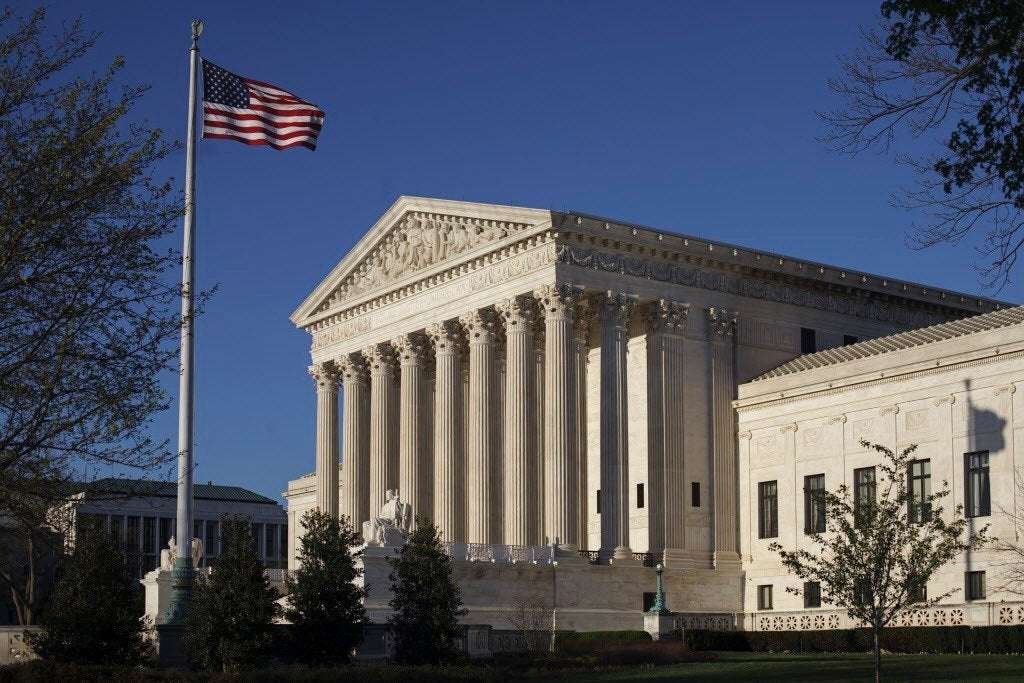Everyone knows stealing is wrong. It’s one of the few moral principles observed across cultures and history. It’s so deeply ingrained that our children often know not to steal by the time they enter kindergarten.
So, you’d think police would know too. But according to the 9th U.S. Circuit Court of Appeals, you’d be wrong. Applying a judge-made doctrine called “qualified immunity,” the court held that California police who stand accused of stealing $225,000 cannot be sued because they never were told specifically that stealing money from people’s homes violates the Constitution.
Such an opinion is outrageous. The nonprofit Institute for Justice recently filed a brief urging the U.S. Supreme Court to weigh in and do away with qualified immunity. The high court will decide whether to take the case on May 15.
The theft case is Jessop v. City of Fresno. It involves two business partners, Micah Jessop and Brittan Ashjian, who operated and serviced ATMs. Suspecting that the men were operating an illegal gambling business, Fresno police searched their homes and other property.
The officers did not discover any criminal activity, and neither man was charged with a crime. But after the police left, Micah and Brittan discovered criminal activity by the officers. They had taken more than $200,000 in rare coins and cash, including currency kept on hand to restock ATMs.
Micah and Brittan filed a lawsuit, arguing that police had violated the Fourth Amendment by stealing their money. But the trial court held that police were immune from liability. The Ninth Circuit agreed, holding that even if stealing money from a person’s home violates the Constitution—an issue the court declined to decide—qualified immunity shields the officers from accountability.
Created by the U.S. Supreme Court in 1982, qualified immunity was a drastic departure from the historical standards of government accountability. Starting at the founding of the United States, courts held government officials strictly liable for their unlawful acts.
Courts simply decided whether the actions of government officials were illegal and, if they were, courts awarded damages to their victims. It was up to the other branches of government to decide whether wayward officials should be reimbursed for those damages or left to face the consequences.
That all changed with the invention of qualified immunity. Now, government officials are shielded from accountability unless courts already have declared their precise actions unconstitutional in an earlier case. The Supreme Court promised the new rule would “provide no license to lawless conduct.”
The intention was to provide government officials fair warning, so they would not face liability for things no one could know violate the Constitution. But over the years, the doctrine has evolved to require victims of constitutional violations to provide an identical case if they want to hold officials accountable.
For example, the Sixth Circuit recently granted immunity to police officers who sicced their dog on a suspect who was sitting on the ground with his hands up. The court said the officers were immune, because the courts’ earlier dog-bite case involved a suspect who surrendered by lying on the ground with his hands to the sides. By the court’s logic, police could not be expected to realize that these two circumstances are equally illegal.
Related Articles Listening to the coronavirus ‘experts’ has led to death and despair: Ron Paul
Newsom, Legislature should prepare to downsize state government further
AB5 relief bills voted down in committee
Business targets COVID-19 bills as ‘job killers’
You can protect Santa Ana even if the police union won’t, vote ‘No’ on the recall Qualified immunity now protects even those government officials who intentionally break the law. Among many other examples in 2019 alone, courts around the country permitted police to blow up an innocent woman’s house, shoot a 10-year-old child while trying to kill a nonthreatening family dog, and dump a mentally infirm man along the highway at dusk, where he was hit and killed by a car.
After 38 years of abuse, the Supreme Court could revisit the issue with the Jessop case or one of the other 12 up for consideration. If any of these cases had entered the judicial system in 1980, 1880 or even 1780, the government officials involved would have faced accountability. Thanks to qualified immunity, they remain untouchable.
In other words, the doctrine became what the Supreme Court promised it would not: a license for officials to break the law. It’s time to end the immunity. Courts should uphold the Constitution, not create ways for government officials to get around it.
Patrick Jaicomo and Anya Bidwell are attorneys at the Institute for Justice. Bidwell is also the Elfie Gallun Fellow in Liberty and the Constitution.

SomeoneNamedSomeone on May 18th, 2020 at 10:52 UTC »
"For example, the Sixth Circuit recently granted immunity to police officers who sicced their dog on a suspect who was sitting on the ground with his hands up. The court said the officers were immune, because the courts’ earlier dog-bite case involved a suspect who surrendered by lying on the ground with his hands to the sides. By the court’s logic, police could not be expected to realize that these two circumstances are equally illegal." Holy shit. This is beyond idiocracy.
DeanCorso11 on May 18th, 2020 at 06:08 UTC »
So strange that they are clearly violating the Forth Amendment. Like there is literally no other way to interpret the amendment. 1982 must been a hell of a year for the police in terms of search and seizures.
BuddhaPunch1 on May 18th, 2020 at 03:26 UTC »
This is why courts should not be allowed to invent excuses. Either a thing is legal, or it isn't. The whole issue started from bad judicial practices.